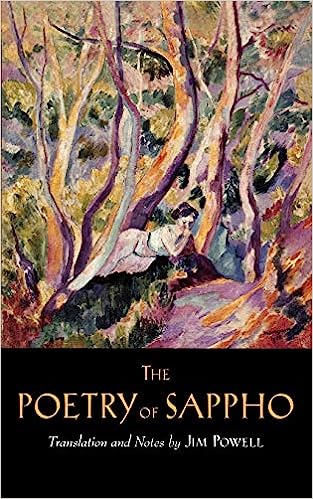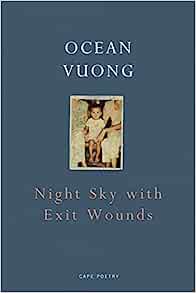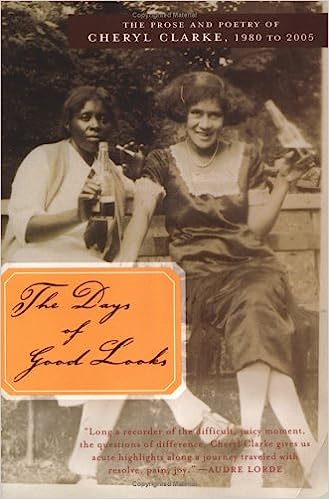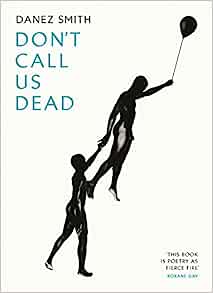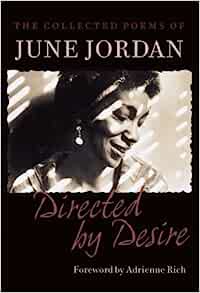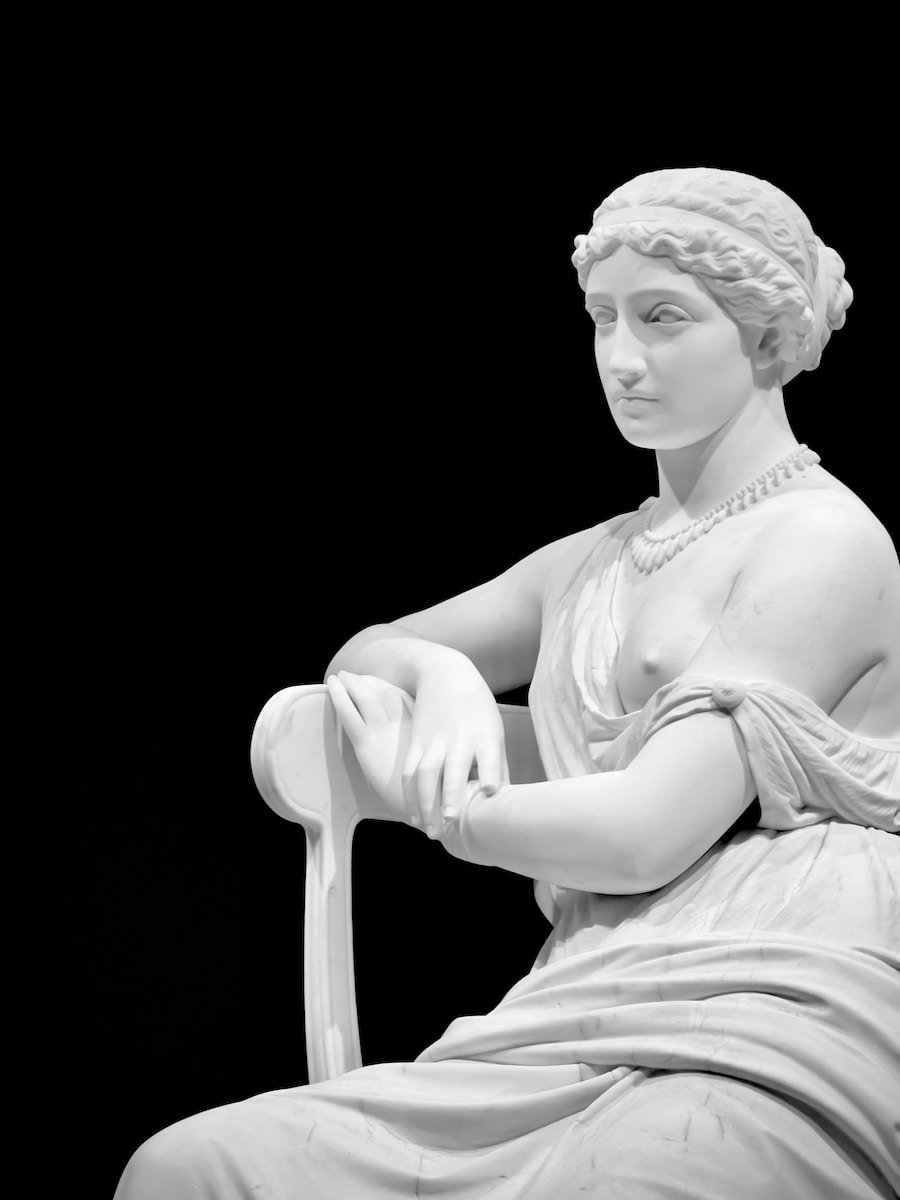
Poetry has always been a medium for self-expression, introspection, and the exploration of human emotions. Throughout history, lesbian poets have contributed immensely to the realm of literature, offering their unique perspectives and experiences. These poets have crafted verses that celebrate love, desire, identity, and the complexities of same-sex relationships. In this article, we will delve into the world of lesbian poems and poets, acknowledging their artistic contributions and the impact they have had on queer literature.
History of Lesbian Poems and Poets
Lesbian poetry finds its roots in ancient times, although the overt expression of same-sex desire was often suppressed or condemned. Sappho, an Ancient Greek poet from the island of Lesbos, remains an iconic figure in the history of lesbian poetry. Her lyrical verses explored themes of love, passion, and the beauty of women, leaving an indelible mark on the literary landscape.
The Harlem Renaissance, a cultural movement of the 1920s and 1930s, witnessed the emergence of several influential lesbian poets. Angelina Weld Grimké, a prolific writer, tackled themes of racial injustice and same-sex desire in her works. Her poetry reflected the complexities of being a Black lesbian in a society plagued by prejudice.
Another prominent voice of the Harlem Renaissance was Ma Rainey, known as the “Mother of the Blues.” While not primarily a poet, her lyrics often explored same-sex relationships, desire, and the lived experiences of queer individuals, challenging societal norms through her music.
Lesbian poets have long used their art to explore the intricacies of identity and desire. Audre Lorde, a prominent figure in feminist and lesbian literature, delved into themes of intersectionality, racism, and the challenges faced by queer women of color. Her poetry was a powerful medium for advocating self-acceptance and social change.
Adrienne Rich, another renowned lesbian poet, examined the complexities of relationships, female desire, and the struggle for autonomy within patriarchal structures. Her work emphasized the importance of women’s voices and agency.
Lesbian poetry often celebrates the beauty and intensity of same-sex love and relationships. Poets like Judy Grahn, Cheryl Clarke, and Minnie Bruce Pratt have explored themes of love, desire, and the transformative power of intimate connections. Their verses speak to the deep emotions and experiences that are unique to lesbian relationships, offering solace and affirmation to readers who resonate with their words.
In recent years, lesbian poets continue to enrich the literary landscape with their diverse voices and perspectives. Poets such as Eileen Myles, Danez Smith, and Ocean Vuong have garnered critical acclaim for their exploration of queer identities, experiences, and the intersections of race, gender, and sexuality. These poets challenge societal norms and expand the boundaries of contemporary poetry, forging new paths for future generations.
Notable Lesbian Poets and Poems
These poets have made significant contributions to the realm of lesbian literature, exploring themes of love, desire, identity, and social justice through their powerful verses. Their work continues to inspire and resonate with readers around the world.
Sappho (Ancient Greek poet)
Sappho, often referred to as the “Tenth Muse,” was an Ancient Greek poet who lived on the island of Lesbos during the 7th and 6th centuries BCE. While much of her life remains shrouded in mystery, her poetry has left an indelible mark on the world of literature and is often considered among the finest works of ancient Greek literature. You might have been wondering what the meaning of Sapphic was and also why Sappho is a hashtag all over lesbian social media lately. Well, now you know why.
Sappho was known for her lyric poetry, particularly her songs and odes that explored themes of love, desire, and the beauty of women. Her verses were deeply personal, evoking intense emotions and vivid imagery. Sappho’s poetry often celebrated the love and longing between women, and she is widely regarded as one of the earliest known voices of lesbian desire in Western literature.
Unfortunately, much of Sappho’s work has been lost over the centuries. Only fragments of her poetry remain. Check out the below book for some of her saved poems.
Angelina Weld Grimké
Angelina Weld Grimké was an American playwright, poet, and educator born on February 27, 1880, in Boston, Massachusetts. She came from a prominent biracial family, with her father being a white lawyer and her mother being African American. As a woman of mixed race during a time of racial discrimination, Grimké’s experiences profoundly influenced her artistic and social perspectives.
Grimké is best known for her poetry and plays that tackled themes of racial injustice, women’s rights, and same-sex desire. She was part of the Harlem Renaissance, a vibrant cultural movement that celebrated the achievements of African American artists and intellectuals in the 1920s and 1930s.
Her poetry, while relatively few in number, demonstrated her keen sensitivity to the plight of African Americans and explored the complexities of her biracial identity. Many of her poems reflected her experiences of being marginalized within both black and white communities, emphasizing the importance of embracing one’s heritage and advocating for equality.
Ma Rainey
Ma Rainey, born Gertrude Pridgett on April 26, 1886, in Columbus, Georgia, was a pioneering African American blues singer and one of the first professional African American women to record music. Often referred to as the “Mother of the Blues,” she left an indelible mark on the music industry and played a significant role in shaping the development of blues music.
Raised in a musical family, Ma Rainey began her career as a performer in vaudeville shows in her early teens. She traveled extensively, performing in various minstrel and tent shows throughout the Southern United States. Her powerful and soulful voice, combined with her charismatic stage presence, quickly garnered attention and made her a popular attraction.
In the 1920s, Rainey signed a recording contract with Paramount Records, which marked the beginning of her recording career. She recorded over 100 songs during her career, covering a wide range of themes such as love, sexuality, empowerment, and the African American experience. Her songs, often accompanied by a jazz or blues band, showcased her expressive and emotive singing style and laid the groundwork for future blues and jazz artists.
Ocean Vuong
Ocean Vuong is a highly acclaimed Vietnamese-American poet, essayist, and novelist whose work explores themes of identity, memory, love, and the immigrant experience. Born on October 14, 1988, in Ho Chi Minh City, Vietnam, and raised in Connecticut, USA, Vuong is known for his poignant and lyrical writing that combines personal narratives with larger social and historical contexts.
Vuong’s poetry delves into deeply personal and emotional territories, reflecting on his experiences as a queer person and a child of Vietnamese immigrants. His work often explores the complexities of desire, longing, and the intersections of race and sexuality. Vuong’s language is vivid and evocative, drawing readers into his world and creating a powerful sensory experience.
One of Vuong’s most acclaimed works is his debut poetry collection, “Night Sky with Exit Wounds” (2016), which received numerous awards and nominations. The collection delves into themes of love, family, war, and cultural displacement, with poems that resonate with vulnerability and honesty. Vuong’s unique poetic voice challenges conventions and breaks new ground, captivating readers with his raw emotional power.
In addition to his poetry, Vuong is also a celebrated novelist. His debut novel, “On Earth We’re Briefly Gorgeous” (2019), is a critically acclaimed coming-of-age story that explores the complexities of love, identity, and the intergenerational trauma of the Vietnamese immigrant experience. The novel further showcases Vuong’s lyrical prose and his ability to craft intimate and profound narratives.
Vuong’s writing has received numerous accolades and honors, including the T.S. Eliot Prize, the Whiting Award, and a MacArthur Fellowship. His work has resonated with readers around the world, earning him a devoted following and establishing him as one of the most important voices in contemporary literature.
Ocean Vuong’s poetry and prose offer a unique and powerful exploration of identity, love, and the immigrant experience. His ability to merge personal and universal themes, along with his exquisite language and profound insight, make him a vital voice in modern literature.
Audre Lorde
Audre Lorde, born Audrey Geraldine Lorde on February 18, 1934, in New York City, was a trailblazing African American writer, poet, feminist, and civil rights activist. She is widely regarded as one of the most influential figures in contemporary feminist and LGBTQ+ literature, and her work continues to resonate with readers worldwide.
Lorde’s writing explored themes of identity, race, gender, sexuality, and the intersections of these aspects of human experience. As a self-described “black, lesbian, mother, warrior, poet,” she drew from her personal experiences to challenge societal norms and advocate for social justice. Her poetry and essays addressed issues of racism, sexism, homophobia, and the importance of self-empowerment and self-expression.
One of Lorde’s seminal works is her collection of essays titled “Sister Outsider,” published in 1984. This collection delved into various topics such as racism, sexism, and homophobia, examining how these forms of oppression intersect and affect marginalized communities. In “Sister Outsider,” Lorde also discussed the importance of embracing differences and celebrating diversity as a means of achieving collective liberation.
Lorde’s poetry was characterized by its powerful imagery, emotional depth, and passionate exploration of the complexities of identity and desire.
Adrienne Rich
Adrienne Rich was an American poet, essayist, and feminist activist who lived from May 16, 1929, to March 27, 2012. She was born in Baltimore, Maryland, and emerged as one of the most influential and celebrated voices in contemporary American literature.
Rich’s work explored themes of identity, social justice, women’s rights, and the complexities of personal and political relationships. Throughout her career, she evolved both stylistically and thematically, leaving behind a vast body of work that reflected her commitment to social change and her exploration of the human experience.
One of Rich’s most notable contributions to feminist literature was her examination of the female experience within patriarchal systems. Her early poetry, such as her collection “Snapshots of a Daughter-in-Law” (1963), delved into the struggles of women in conforming to societal expectations and the suppression of their desires and voices. As her work progressed, Rich became increasingly political, advocating for the rights of marginalized groups and highlighting the intersections of gender, sexuality, race, and class.
In addition to her poetry, Rich was a prolific essayist, writing thought-provoking pieces on a range of topics, including literature, politics, and feminism. Her collection of essays, “On Lies, Secrets, and Silence” (1979), explored the ways in which language, silence, and power intersect and shape our understanding of personal and collective experiences.
Judy Grahn
Judy Grahn is an American poet, writer, and cultural theorist known for her influential contributions to lesbian feminist literature and LGBTQ+ activism. Born on July 28, 1940, in Chicago, Illinois, Grahn emerged as a prominent figure in the feminist and queer movements of the 1970s and has since left an enduring impact on the literary and social landscape.
Grahn’s work encompasses a wide range of themes, including feminism, lesbianism, spirituality, mythology, and social justice. Her poetry explores the experiences of women, celebrating their resilience, strength, and interconnectedness. Her writings often challenge dominant narratives and offer alternative perspectives on history, myth, and identity.
One of Grahn’s most significant works is her collection of poetry titled “The Common Woman” (1969). This collection, with its powerful and accessible language, celebrates the lives and experiences of everyday women, giving voice to their struggles, desires, and triumphs. “The Common Woman” became an important touchstone for the emerging lesbian feminist movement, resonating with readers who sought affirmation and representation.
Grahn’s activism and writing also address the intersections of gender, sexuality, race, and class. Her commitment to social justice is evident in her involvement in various feminist and LGBTQ+ organizations, including her co-founding of the Women’s Press Collective and her role in organizing the West Coast Lesbian Conference in 1970.
Cheryl Clarke
Cheryl Clarke is an African American lesbian poet, essayist, and educator whose work has made a significant contribution to African American and LGBTQ+ literature. Born on July 16, 1947, in Washington, D.C., Clarke has been a powerful voice in exploring themes of identity, love, desire, and social justice.
Clarke’s poetry often addresses the experiences of Black lesbians, shining a light on the intersections of race, gender, and sexuality. Her verses challenge societal norms and celebrate the beauty and resilience of Black queer women. Clarke’s poetry is known for its lyrical and evocative language, as well as its unapologetic exploration of desire, intimacy, and the complexities of human relationships.
In her collection of poems titled “Living as a Lesbian” (1986), Clarke delves into her personal experiences and the experiences of other Black lesbians, documenting their struggles and joys. The collection encompasses themes such as love, family, community, and the impact of social and political systems on marginalized identities.
Clarke’s activism and writing extend beyond her poetry. She has written essays and critical works on Black feminist theory, the intersections of race and sexuality, and the importance of representation in literature. Clarke’s essay collection, “The Days of Good Looks: Prose and Poetry, 1980-2005” (2006), explores a wide range of topics, including politics, culture, and the power of language.
Minnie Bruce Pratt
Minnie Bruce Pratt is an American poet, essayist, and LGBTQ+ activist known for her powerful and introspective writing that explores themes of identity, love, desire, and social justice. Born on September 12, 1946, in Selma, Alabama, Pratt’s work reflects her experiences as a lesbian, a mother, and a feminist.
Pratt’s poetry is characterized by its raw emotional intensity, vivid imagery, and profound exploration of personal and political themes. Her writing delves into the complexities of desire, the challenges faced by marginalized communities, and the intersections of gender, race, and sexuality. Pratt’s poems often challenge societal norms, dismantling oppressive systems and advocating for equality and social change.
One of Pratt’s notable works is her collection of poems titled “Crime Against Nature” (1990), which received critical acclaim. This collection examines the struggles and joys of being a lesbian in a society that often marginalizes and criminalizes queer identities. Through her poetry, Pratt offers a deeply personal and unapologetic perspective on love, intimacy, and the pursuit of freedom.
Eileen Myles
Eileen Myles is an American poet, novelist, and performer whose work has had a profound impact on contemporary literature and queer culture. Born on December 9, 1949, in Cambridge, Massachusetts, Myles is known for their candid and provocative writing, which explores themes of gender, sexuality, class, and identity.
Myles’s poetry often blurs the boundaries between the personal and the political, offering a unique and unfiltered perspective on everyday experiences. Their writing is characterized by its raw and confessional style, infused with wit, humor, and a keen observation of the world around them. Myles’s poems challenge social norms and push against traditional forms, embracing a sense of experimentation and spontaneity.
One of Myles’s most notable works is their poetry collection “Not Me” (1991), which gained critical acclaim for its candid exploration of sexuality, desire, and the search for self. Through their poetry, Myles fearlessly tackles topics such as queer desire, gender identity, and the complexities of relationships, inviting readers into an intimate and vulnerable space.
Danez Smith
Danez Smith is an American queer poet, performer, and writer whose work has garnered critical acclaim for its powerful exploration of race, identity, sexuality, and social justice. Born in St. Paul, Minnesota, in 1989, Smith has emerged as one of the most dynamic and influential voices in contemporary poetry.
Smith’s poetry is characterized by its lyrical intensity, inventive language, and fearless examination of personal and societal experiences. Their work often centers on themes of Blackness, queerness, and the intersections of marginalized identities. Smith’s poems confront systemic oppression, celebrate resilience, and challenge the status quo, offering a transformative and empowering vision of the world.
One of Smith’s most notable works is their collection of poems titled “Don’t Call Us Dead” (2017), which was a finalist for the National Book Award for Poetry. This collection grapples with the violence faced by Black communities and the impact of police brutality, while also delving into themes of love, intimacy, and the search for identity. “Don’t Call Us Dead” received widespread acclaim for its unflinching exploration of the Black queer experience and its powerful use of language to interrogate and challenge oppressive systems.
Emily Dickinson
Emily Dickinson, born on December 10, 1830, in Amherst, Massachusetts, is widely regarded as one of the most influential and celebrated poets in American literature. While Dickinson’s personal life remains enigmatic, her poetry has captivated readers with its distinctive style, profound introspection, and exploration of themes such as love, nature, mortality, and the human condition.
Though Dickinson lived a mostly secluded life, she maintained a rich correspondence with friends and family. She was known for her reclusive nature, often choosing to stay within the confines of her family home. Despite her private existence, Dickinson’s poetry reveals a deeply sensitive and perceptive mind, marked by keen observations and a unique perspective on the world.
Throughout her life, Dickinson wrote prolifically, composing nearly 1,800 poems, although only a handful were published during her lifetime. After her death in 1886, her sister Lavinia discovered Dickinson’s extensive collection of poems and ensured their publication, exposing the world to the breadth and depth of her poetic genius.
Dickinson’s poetry is characterized by its unconventional style and structure. Her use of dashes, unconventional capitalization, and compact stanzas create a distinctive rhythm that adds depth and complexity to her work. Her poetry often employs vivid imagery, drawing upon nature, personal experiences, and intense emotions to convey a profound sense of intimacy and reflection.
While Dickinson never publicly identified as a lesbian, there has been speculation and analysis of the homoerotic elements within her poetry. Some scholars have interpreted her intense relationships with women, particularly her close friendships with Susan Gilbert Dickinson and Kate Scott Anthon, as evidence of her queer identity. These interpretations have added another layer of complexity and resonance to her already captivating body of work.
Emily Dickinson’s poetry continues to inspire and resonate with readers around the world. Her exploration of love, passion, and the human spirit remains timeless, and her ability to distill profound emotions into concise and evocative language ensures her place as one of the most influential poets in literary history.
June Jordan
June Jordan, born on July 9, 1936, in Harlem, New York City, was an influential poet, essayist, playwright, and activist. She is known for her powerful and politically engaged writing, which explored themes of race, gender, identity, and social justice. Jordan’s work reflects her commitment to challenging systemic oppression and advocating for equality and liberation.
Jordan’s poetry often blended personal experiences with political and social commentary. Her language was both accessible and evocative, drawing readers into her vibrant and dynamic world. Her poems were characterized by their lyrical intensity, vivid imagery, and a deep sense of empathy for the struggles of marginalized communities.
One of Jordan’s notable works is her poetry collection “Things That I Do in the Dark: Selected Poems” (1977). This collection delves into personal experiences of love, desire, and family, while also addressing broader social and political issues. Jordan’s poems celebrate resilience, affirm Black identity, and challenge the status quo, offering a powerful voice for the voiceless.
One notable lesbian poem by June Jordan is “Poem About My Rights.” In this powerful and provocative piece, Jordan addresses the experiences of being a woman, a person of color, and a lesbian in a society that perpetuates oppression. The poem delves into issues of violence, discrimination, and the struggle for self-determination. “Poem About My Rights” showcases Jordan’s ability to use poetry as a means of speaking truth to power and advocating for equality and liberation.
Chrystos
Chrystos is a celebrated Indigenous lesbian poet and activist known for her powerful and uncompromising poetry that addresses themes of identity, love, sexuality, and social justice. Born in 1946 in San Francisco, California, Chrystos is of Menominee and Finnish descent and has been a vital voice within the LGBTQ+ and Indigenous communities.
Chrystos’ poetry reflects her lived experiences as an Indigenous woman and a lesbian. Her work often confronts the intersectionality of oppression, including racism, sexism, homophobia, and colonialism. Through her evocative language and vivid imagery, she exposes the systemic injustices faced by marginalized communities and challenges readers to question their own complicity in these structures.
One of Chrystos’ notable works is her poetry collection “Not Vanishing” (1988), which received critical acclaim. In this collection, she explores themes of land, cultural erasure, and the resilience of Indigenous peoples. Chrystos also delves into personal experiences of love, loss, and self-discovery, creating a rich tapestry of emotions that resonates with readers.
Chrystos’ poetry is characterized by its raw honesty, linguistic power, and attention to detail. Her words carry a sense of urgency and a call to action, urging readers to confront injustice and work towards healing and liberation. Through her art, she amplifies the voices and experiences of those who have been silenced and marginalized.
In addition to her poetry, Chrystos has been a vocal activist for Indigenous rights, LGBTQ+ rights, and environmental justice. Her advocacy work, combined with her literary contributions, has made her an influential figure within both the Indigenous and LGBTQ+ communities. Chrystos’ poetry continues to inspire and challenge readers, offering a powerful testament to the resilience and strength of marginalized voices.
Rachel McKibbens
Rachel McKibbens is an accomplished poet, performer, and educator known for her emotionally charged and fiercely honest poetry. Born on August 16, 1977, in Anaheim, California, McKibbens has gained recognition for her powerful exploration of trauma, mental health, motherhood, and the experiences of marginalized communities.
McKibbens’ poetry is marked by its raw vulnerability, vivid imagery, and rhythmic language. Her work often delves into personal experiences of abuse, addiction, and recovery, offering an unflinching examination of the human condition. Through her words, McKibbens invites readers into the depths of her own journey, creating a space for empathy and understanding.
One of McKibbens’ notable works is her poetry collection “Pink Elephant” (2009), which received critical acclaim. In this collection, she tackles themes of addiction and recovery, drawing from her own experiences with substance abuse and the challenges of overcoming addiction. McKibbens’ poems navigate the complexities of healing, self-discovery, and the pursuit of self-acceptance.
As a performer, McKibbens brings her poetry to life on stage, utilizing her dynamic presence and commanding voice to captivate audiences. Her performances are known for their intensity and emotional resonance, creating a deeply visceral experience for listeners.
In addition to her poetry, McKibbens is dedicated to teaching and mentoring young writers. She has conducted workshops and served as a mentor for aspiring poets, sharing her expertise and encouraging creative expression.
Rachel McKibbens’ poetry is a testament to the power of words to confront trauma, challenge societal norms, and inspire healing. Through her unfiltered and authentic voice, she shines a light on marginalized experiences and creates space for empathy and connection. McKibbens’ work continues to resonate with readers and listeners, affirming the importance of speaking one’s truth and embracing vulnerability.
Pat Parker
Pat Parker was an influential African American lesbian poet, activist, and performer who played a significant role in shaping the LGBTQ+ and feminist movements of the 20th century. Born on January 20, 1944, in Houston, Texas, Parker’s work explored themes of race, gender, sexuality, love, and social justice.
Parker’s poetry was characterized by its boldness, lyrical intensity, and unapologetic exploration of personal and political experiences. Her words were a powerful tool for challenging societal norms and advocating for equality. Through her poetry, she confronted issues of racism, sexism, homophobia, and the intersections of these forms of oppression.
One of Parker’s notable works is her poetry collection “Movement in Black” (1978), which received critical acclaim. In this collection, she explored the experiences of Black women, particularly Black lesbians, celebrating their resilience and affirming their identities. Parker’s poems delved into the complexities of love, desire, and the intersections of race and sexuality, challenging readers to confront their own biases and assumptions.
Parker’s activism extended beyond her poetry. She was a passionate advocate for social justice and was involved in numerous organizations and movements, including the Black Panther Party and the Women’s liberation movement. Parker used her art and her voice to speak out against injustice, fighting for the rights of marginalized communities and advocating for equality.
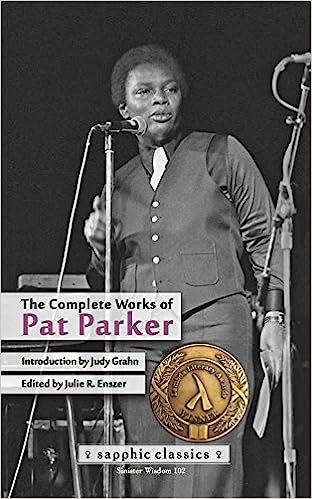
Buy Here
In summary…
Lesbian poetry stands as a testament to the resilience, creativity, and depth of the queer experience. From ancient times to the present, lesbian poets have fearlessly expressed their desires, loves, and struggles, contributing to the rich tapestry of literature. Their poems serve as a source of inspiration, empowerment, and representation for individuals within the LGBTQ+ community, as well as a means of fostering empathy and understanding among wider audiences. By celebrating lesbian poets and their works, we acknowledge the power of art to illuminate diverse perspectives and shape our collective cultural consciousness.
We hope you enjoy the lesbian poets mentioned, let us know of any others that you have discovered by commenting below.
Team Nonchalant x

